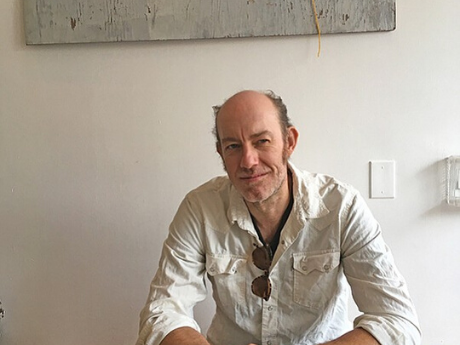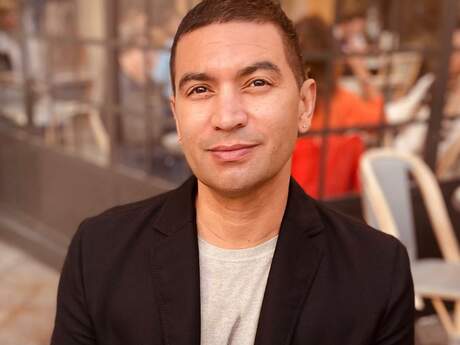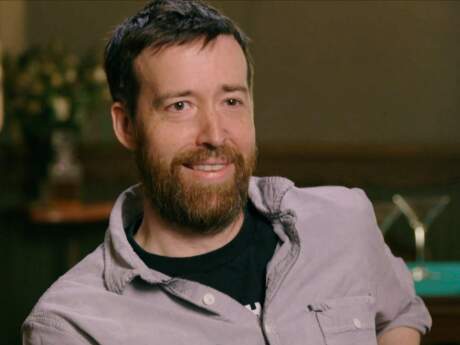Q & A: American Poetry
Q & A American Poetry: Ben Doller

In what ways might you consider yourself an American poet?
There are so many different Americas. My point of view is through a keyhole and I'm hesitant to speak for anyone else, so I won't.
The America that is the throbbing heart of colonizing corporate capitalism, the military-industrial complex America, war-on-the-poor America, Agent-Orange-as-food-fertilizer America, that's the America I think of when I first read this question. If my poems can begin to deal with my complicity in the face of this America, my irrelevance, and the perpetual hypocritical situation of my 'citizenship' then I think that's a start. Here, I mean a poetry that enacts these conditions through its musical, syntactical, and formal strategies and the veer and range of its thought, as well as its acceptance of a kind of ethic of ambiguity. An aesthetics of ambivalence? This seems to me, personally, to be a way to at least approach my 'American-ness' in poetry, as poetry.
I speak some dialect of American, I punctuate my incomplete sentences with words like "like," and I often have trouble looking people in the eye. I waste time. I've made these tendencies part of my writing for lack of an honest alternative. America is the worldwide leader in the manufacture of disposable noise and trash, and I'm all for making different things (art) out of those. Certainly I consider myself an American poet in this messy sense. If a poem I wrote ever happened to contain some landscape like, say, a ravine or something, I imagine this ravine would be an American ravine because most of the ravines I've seen have been in America. Then again, I have seen a few international ravines (mostly on television).
Poetry to me always seems a struggle between chaos and control, between thinking and forgetting, between singing and silence. This struggle isn't particularly American at all, but you see it in all the best and worst things America has made. Certainly the US, a fairly young nation stained with revolution, genocide, and slavery has a history of such struggle. Are we speaking about "The Man," or the men and the women?
Do you believe there is anything specifically American about American poetry past and present? Is there American poetry in the sense that there is said to be American painting or American film?
Sure. Language first—American poetry is fed by the way it spouts from American mouths. If there's some DNA lodged in the amber it's there in American poetry's relationship to American vernacular, to phrases and shapes of thought Americans 'take for granted'—as well as the way these are resisted or twisted. Again, though, what culture's poetry isn't fed in some way by these same things?
I'd hope American poetry shares more in common with American music, which I think has some pretty great examples and, like poetry, has the quality of being able to exist quite (more?) healthily outside of a traditional marketplace. When I went to college to paint, I learned that paint can be prohibitively expensive. I know how much the movies cost. When the newest wave of American homemade digital film and painting rise up we may have an analogy.
What role do historical and geographical factors play in American poetry and in your work specifically? What other aspects of your life (for instance: gender, sexual preference, class, ethnicity, religious beliefs) relate to your sense of being a poet in America?
My identity as a straight, atheist, upper-lower class, lower-middle aged white guy makes me…well…next question.
Is there something formally distinctive about American poetry?
Certainly. All American poetry is written on Macbooks in Starbuckses.
What significance does popular culture possess in your sense of American poetry?
I've always been a little more interested in "unpopular popular culture," hence my interest in poetry. As source- or nudge-material, popular culture (whatever that is) is just as valid or interesting as anything else. Certainly there's plenty fascinating about the ways it has been perfected and marketed, as well as the way subversive art is inevitably commodified. And I suppose it can sometimes create waves of arbitrary reference, material in poems that connect some of us to each other, a kind of recognition or shared living room.
When you consider your own "tradition," do you think of American poets, non-American poets? Which historic poets do you consider most responsible for generating distinctly American poetics?
I like to think of America in terms of "The Americas" and certainly would include Borges, Bolaño, Vallejo, Lispector, Bök, Robertson, Brathwaite, Huidobro, and Native American songs in my "tradition." I also reserve the right to claim as my poetic tradition anything I like—including work in other art forms, genres, and languages, including Beckett, Beuys, Dylan, Gervais. And Stein and Stein and Stein. (My wife Sandra Doller is a major influence, but she won't tell me which country she's from.)
What are your predictions for American poetry in the next century?
Poetry as we know it will die. So will I. This will be a coincidence.
Published 2010.


